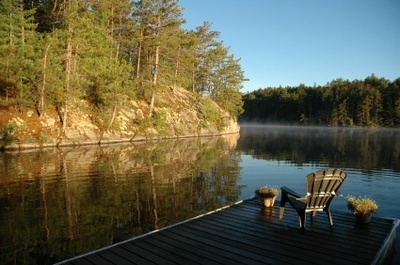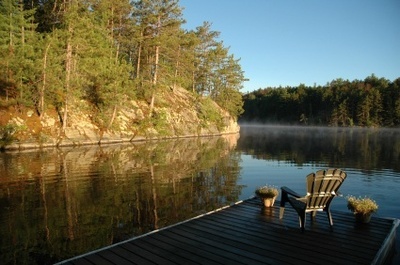Bob Aaron in Legal, Home Buying
The most important question for anyone buying a cottage
property is always, "How do I get there from here?" After all, there's
no point spending hundreds of thousands of dollars on a recreational
home if the only way to get to it is by helicopter.
Access to
cottages was the issue in a case heard by the Ontario Court of Appeal
last year. A group of cottagers live year-round on the shores of Lake
St. John in Ramara township. The cottage sites are on reserve lands of
the Mnjikaning First Nation, and the cottagers pay the Crown an annual
rent of $1,400 to $1,500 each.
The only existing motor vehicle
access to the cottages is over a road located on an adjacent lot,
purchased in 2003 by a numbered company owned by the Mnjikaning First
Nation.
The previous owner of the adjacent lot charged the
cottagers a $500 annual fee for the use and maintenance of the access
road. When the numbered company bought the lot, it advised the
cottagers that they would each be required to pay $2,000 annually, but
only for seasonal access between May and November.
It wasn't
long before the corporation owned by the First Nation band sued two of
the cottagers for trespass by snowmobile, and a group of cottagers sued
the First Nation corporation for an injunction restraining them from
interfering with road access to and from their cottages.
The
case involves the interpretation of Ontario's Road Access Act,
originally passed in 1978 to resolve disputes that occur when the
property of one neighbour is landlocked, and the only vehicle access to
it is over a road on property owned by another neighbour.
The act provides that the owner of the access road generally cannot
close it without a court order. By implication, the act allows the
owner to close the road without a court order if there is "alternate
road access."
The court in this case had to decide whether the cottagers had "alternate road access" under the act.
The
trial took place in June, 2005 before Justice Peter Howden. The native
band argued that it was entitled to close its access road without a
court order because the cottagers had two alternatives: They could
travel over the existing road on payment of the $2,000 user fee, or
they could use a municipally-regulated unopened road allowance.
Under
the legislation, an access road is a road on private land that serves
as the only motor vehicle access route to one or more parcels of land.
An unopened road allowance is a strip of Crown land reserved for the
purpose of making a road sometime in the future, but it does not
actually exist on the ground. In this case, the unopened road allowance
was not useable.
Justice Howden ruled in favour of the
cottagers. The roadway was an access road within the meaning of the
legislation, and could not be closed or blockaded without a court
order.
The cottagers were granted an injunction preventing the
land owner from blocking the road, subject to payment of a yearly fee
of $500 by each cottager to the landowner. The fee had to be based on
the actual maintenance and repair costs of the existing gravel road.
The cottagers were awarded $57,000 plus GST in court costs against the First Nation corporation.
The
band appealed and the matter reached the Court of Appeal last summer.
Writing for a three-judge panel, Justice John Laskin upheld the trial
decision, dismissed the appeal and ordered costs of $8,000 against the
First Nation corporation.
He warned the cottagers that although
they won the case, they would have no defence to an application by the
First Nation corporation to close the access road if the township
granted approval to open the unopened allowance. In that event, the
cottagers would have to pay an estimated $450,000 in construction costs
for the new road.
Road access is perhaps the most critical aspect
of buying a cottage. This even applies to island cottages, where access
to a place to park a car and launch a boat is vitally important. A
cottage is of no value if there's no legal way to get there.
Bob Aaron is a sole practitioner at the law firm of Aaron &
Aaron in Toronto. Bob specializes in the areas of real estate,
corporate and commercial law, estates and wills and landlord/tenant
law. His Title Page column appears Saturdays in The Toronto Star and weekly on Move Smartly. E-mail bob@aaron.ca
Subscribe to the Move Smartly blog by email





